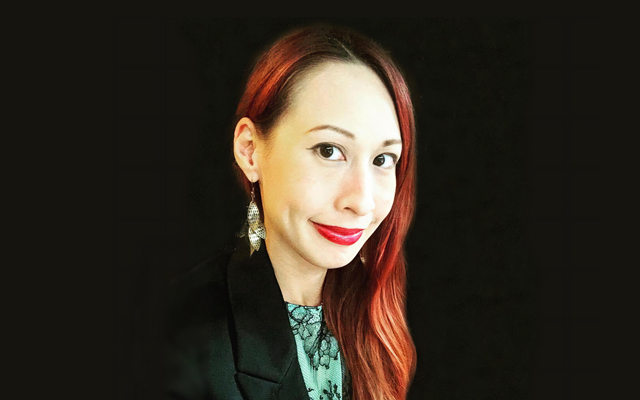The South-east Asian travel industry could take a lesson from Thailand’s incident with Covid in Rayong the past week, where the 31-person Egyptian military delegation, containing one Covid-positive individual, exposed the previously Covid-free tourist town to infection.
The aftermath of the incident saw local Thai travellers bolting like scared rabbits – not just from Rayong but also neighbouring Koh Samet, with many hotels reporting 80-100 per cent decimation of their bookings.

The fact that Koh Samet is only reachable via a 1.5-hour boat ride from Rayong, and not by car, was immaterial to travellers. Overnight, the hard work, including various financial stimuli and hygiene certification schemes painstakingly instigated by the government and NTOs, to revive domestic tourism was undone in not just one province, but nearby provinces like Pattaya as well.
Though the bulk of the cancellations was sustained by economy and midscale hotels, rather than big brands and upscale properties, it did nothing to tame tempers. Rage from Rayong locals boiled over. “After months of nothing, it’s back to nothing,” lamented the father of one Rayong hospitality business owner to Pattaya Mail, referring to the past 3.5 months of lockdown.
Such is the panic and paranoia that has set in, amid fears of a fresh outbreak catalysing another lockdown, stranding travellers in destination provinces and further paralysing the economy.
In another recent incident, China temporarily banned all Thai AirAsia X and Thai Lion Air flights, after two chartered flights operated by the carriers that stopped over in Thailand with no disembarkation arrived in China carrying Covid-infected passengers.
Nearby in Myanmar, the government has also extended the ban on international flights till October and shelved the initiation of travel bubbles – similar to Thailand, which has done so indefinitely – due to potential bubble partners like China, South Korea, Hong Kong and Australia battling fresh virus outbreaks.
When I saw that news, my heart sank. Is fear the right response? It isn’t just Thailand that’s tiptoeing towards restarting its economic engines. If every country is paralysed by fear of its neighbours having even the faintest hint of Covid, the region could be locked into a Catch-22.
At this point, the Ministry of Travel and Sports projects that approximately 60 per cent of the hospitality industry in Thailand will be wiped out if foreign tourists aren’t let in by 4Q. Diethelm Travel Group CEO, Stephan Roemer, also said back in June that if Thailand were to reopen to international tourists only in October, the cost reduction on the payroll of a DMC or hotel would rise to 60 per cent.
We’re taking baby steps towards recovery, but being faced with giant setbacks. It’s becoming apparent that if we rely on fear to help us overcome Covid, it will ultimately be at the expense of our travel industry.
Meanwhile, the Thai government is banking on domestic tourism to rake in at least 900 billion baht (US$28.4 billion), or nearly one-third of the country’s total tourism industry revenue last year.
Caught in an unrelenting loop of waiting for other countries to become Covid-free, Thailand has to fall back on domestic tourism for survival – but even that once-upon-a-time anchor appears to be on shaky ground, as evidenced by the Rayong incident.
That doesn’t have to be the case. Travel bubbles have resumed for months now in Europe. There is bafflement among Europeans over the response to Covid-19 in countries like Thailand. We have fewer virus cases, but more economic casualties.
I believe the only way the travel industry can survive is if people are taught how to safely abide with Covid. Already, just weeks out of lockdown, I see people becoming more lax. We need more encouragement not to let up on mask-wearing, social distancing, and sanitising; as well as to push for wider adoption of contactless solutions to reduce transmission risk.
These paradigm shifts should be taught and broadcasted frequently, and in detail. We need to adopt a pragmatic response to the crisis in order to drive the tourism industry’s recovery. NTOs also need to work alongside the government to run campaigns to educate travellers on effective disease management, and bolster people’s confidence to travel by providing an accurate risk assessment of incidents like the Rayong case.
Phuket has done well in setting an example by swiftly moving to initiate new safety standards for the hospitality industry to avoid suffering the same fate as Rayong. The province has requested permission from the Center for the Covid-19 Situation Administration to implement its own guidelines. Additionally, the Thai government has also made a shift to tighten quarantine rules for diplomats. All these moves are a step in the right direction.
As my friend and fellow industry professional, Vincent Vichit-Vadakan, put it: “One problem is having created the unreasonable expectation that we will always have zero cases.” We can’t reboot our economic activities under the assumption that we will always remain Covid-free. Doing so would be like building a house of cards.
The travel industry needs to make a concerted push, and take a long hard look not just at environmental or financial sustainability, but also how to sustainably co-exist with Covid-19 until a vaccine is found. Ultimately, that’s the only way we can sustainably restart in countries like Thailand and the rest of South-east Asia.
Anne Somanas is correspondent, Thailand for TTG Asia Media. She reports for the company’s stable of travel trade titles, including TTG Asia and TTGmice.




















